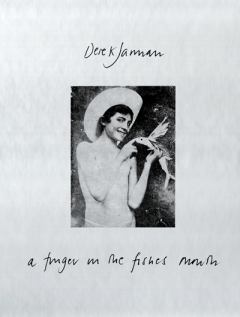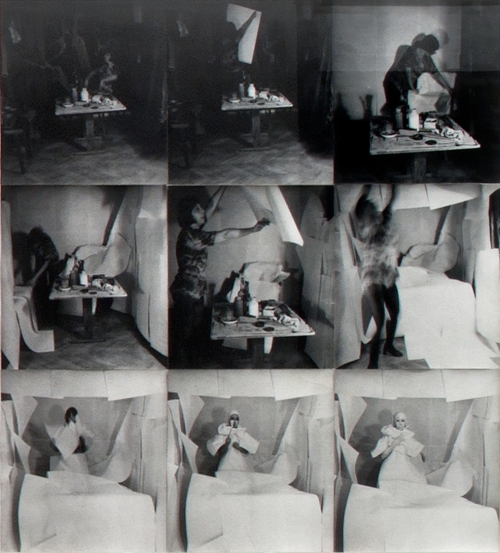
Originally published at The Cadaverine.
It’s easy to feel intimidated by Satantango. This long overdue translation of László Krasznahorkai’s debut novel is preceded for English audiences by Béla Tarr’s 1994 film adaptation (and one of Krasznahorkai’s many collaborations with the director). Over seven hours in length and shot in bleak monochrome, Tarr’s film has unfairly become something of a shorthand for European art-house cinema as endurance test, for a heavy type of art that people can only subject themselves to, god forbid enjoy (Peter Bradshaw, for example, writes in The Guardian that “compared with the Abu Dhabi section of Sex and the City 2, Satantango zips past like an episode of Spongebob Squarepants“). At first glance, solid, unbroken chapter-slabs of prose and lengthy sentences might seem to confirm these fears, but it quickly becomes clear that this novel – much like the film – is sublimely beautiful, exhilarating and often wryly comic.
Krasznahorkai is constantly writing on the brink of something. The inhabitants of a failed, decaying collective farm in rural Hungary are expecting a sudden change in fortune, a possible return to a ‘golden age’, after hearing news of the reappearance of the mysterious Irimiás. His arrival is unexpected; he’s long been thought dead. His relationship to the farmstead remains ambiguous (like so much in this novel), but the villagers are adamant that he is “an angel of hope to hopeless people with hopeless difficulties”. This sense of promise, of impending change, infects even the language of the novel. Take the opening line, which almost trips over itself, racing ahead to a future version of the scene before reining itself back in:
“One morning near the end of October not long before the first drops of the mercilessly long autumn rains began to fall on the cracked and saline soil on the western side of the estate (later the stinking yellow sea of mud would render footpaths impassable and put the town too beyond reach) Futaki woke to hear bells”.
The ‘apocalyptic tense’ of Krasznahorkai’s writing has been much commented upon, but it carries with it as much expectation of salvation as it does damnation. His characters are goats who would like to think of themselves as sheep.
Tarr’s movie is all about single shots that stretch on for uncomfortable periods of time in resounding silence. In the novel, however, nobody shuts up. Those infamous, protracted sentences build a steady momentum, swallowing quotations, digressions and qualifications up and spewing them out in polyphonic parentheses. “The short sentence seems to me like something artificial, affected,” Krasznahorkai says in a recent interview with Guernica magazine, “When we speak, we speak fluent, unbroken sentences, and this kind of speech doesn’t need any periods. Only God needs the period—and at the end He will use one, I am sure.” Indeed, you would think that this cacophony of narrative voices would be anti-divine by nature, anti-authorial, working towards Bakhtin’s “unfinalisable”, polyphonic truth. But there are occasional clues pointing towards a sinister, authorial presence lurking within the labyrinthine sentences (does a peasant woman, elsewhere consistently prosaic, really recall her lover in terms of “him beating at ‘the grassy cliffs of her consciousness like a roaring sea in a storm’”?), a central and containing force that in turn points towards the novel’s strange and structurally ‘ingrown’ ending.
In contrast to the momentum built by the sentences is the way each chapter in the book’s first half replays the same few hours of anticipation from different perspectives. We meet the Schmidts, Futaki the crippled existentialist, a doctor with a “pathological love of order” who keeps meticulous files on his fellow villagers, a cat-torturing child, an afflicted landlord. Their meticulously charted narratives are simultaneous, creating a sense of short-circuited restlessness, a stuck tape. After all, the tango of the novel’s title – which the villagers drunkenly perform ad nauseum(quite literally) in a central scene – is a dance that goes nowhere, each dancer moving back and forth but gaining no ground. The sections of the novel are accordingly choreographed, building from chapter one to six, only to retreat from six to one in its second half. Excitement is stalled, dissipated. As Irimiás notes, “We think we’re breaking free but all we’re doing is readjusting the locks”. The story of a mysterious stranger entering and corrupting a community is a very familiar one (think of Hamsun’s Mysteries, Gogol’s Dead Souls, even Krasznahorkai’s own The Melancholy of Resistance), but this is a case of someone stepping back into the dance: a return, a repetition, a déjà vu, an actual Second Coming. Soon after Irimiás appears, he makes a grand, motivational speech, which inspires the villagers to begin smashing their houses to pieces on the strength of their renewed hopes for the future. Very rapidly, however, Irimiás proves himself a disappointing and deceptive Messiah.
In this soggy landscape of ruined estates, Krasznahorkai lays on the doom and gloom thickly. He depicts its inhabitants “watching helplessly, day after day, the plaster falling off the walls, the walls cracking, the roofs sagging”. A sense of menace is captured perfectly in George Szirtes’ translation (his third translation of Krasznahorkai’s works), in which acacias are described as “panicking”, a pub is full of “terrified larval faces” and the air is saturated with the “demanding wails of babies, their cries sliding off into the tin-smell of dusk”. Young girls prostitute themselves in a church attic, while their still younger sister meets a particularly desolate and tragic end. There is all manner of immorality and futility, exploitation, betrayal, greed, jealousy, grimy lust.
And yet, in spite of this, the book is an absolute joy to read. Biblical or existential angst is rescued from excessive heaviness by an irrepressible humour and irony. We are always on the brink of laughter, as well as of apocalypse. The sexually frustrated landlord covertly turns the heating up in his bar in the hope that Mrs Schmidt will continue to shed more layers of her clothing. The villagers’ faith in Irimiás and his accomplice Petrina as saviours is shattered as soon as we are introduced to them, ridiculously twiddling their thumbs in a police station corridor, as if Beckett had suddenly cut to Godot leafing through Ideal Home in a dentist’s waiting room. In an especially brilliant chapter towards the end of the novel, we are shown an office of clerks charged with the task of transcribing Irimiás’ notes on the villagers, bathetically sanitising his overly gloomy and melodramatic language (“wrinkled drink-sodden dwarf” becomes “elderly alcoholic of small stature”), as if Krasznahorkai is poking fun at the pretensions of his own prose, bursting his own bubbles of mud. These episodes never undermine the book’s more solemn, more awful moments, but they do show the way in which life must often involve a combination of the two. As Petrina remarks, “jokes are just like life… Things that begin badly, end badly. Everything’s fine in the middle, it’s the end you need to worry about”.








